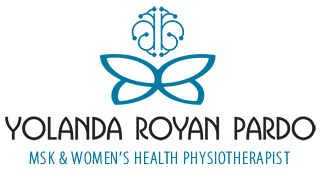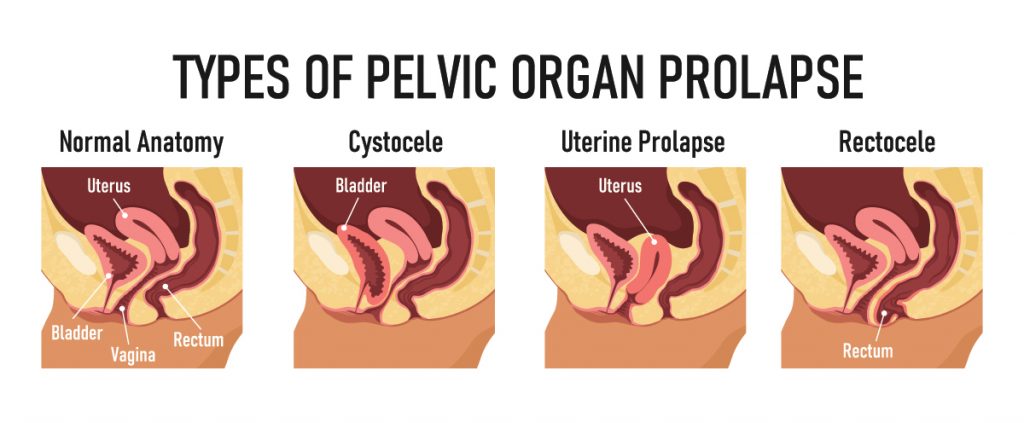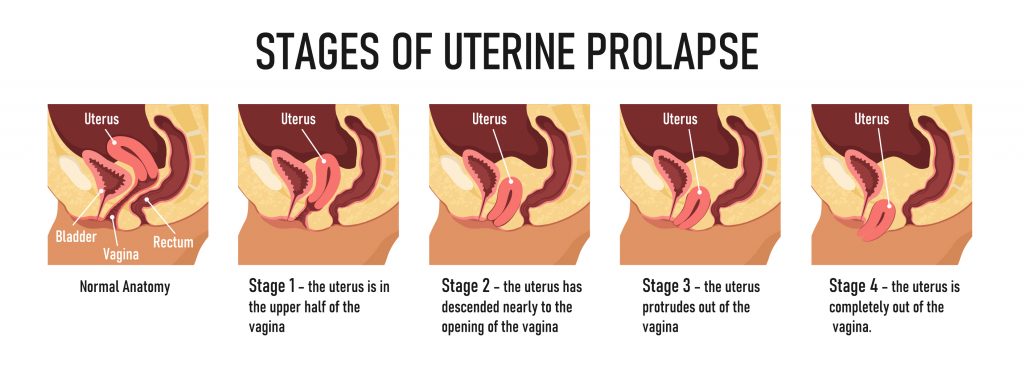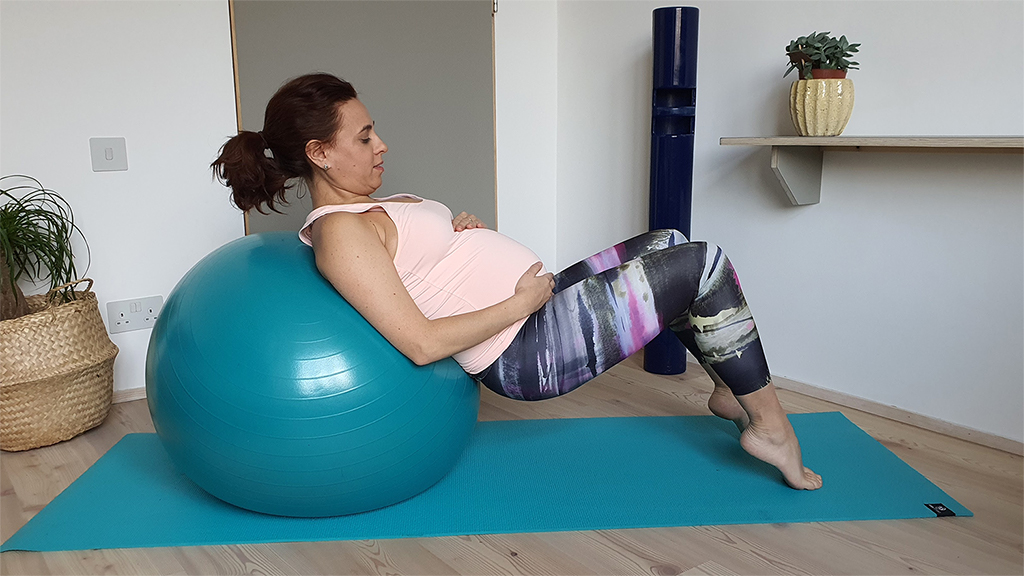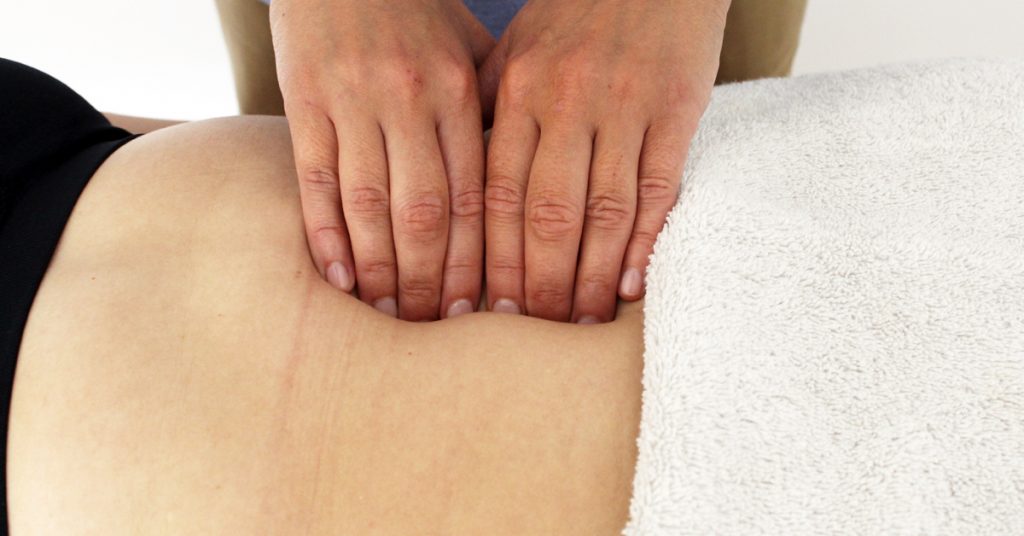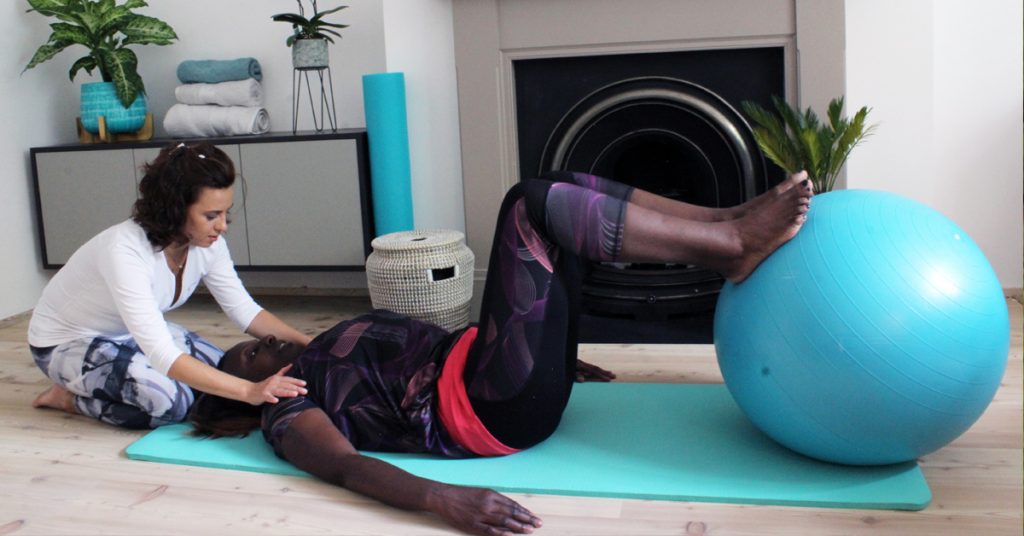Pelvic organ prolapse, is described as a organ that has descended.
If you answer yes to any of these questions, you may have pelvic organ prolapse.
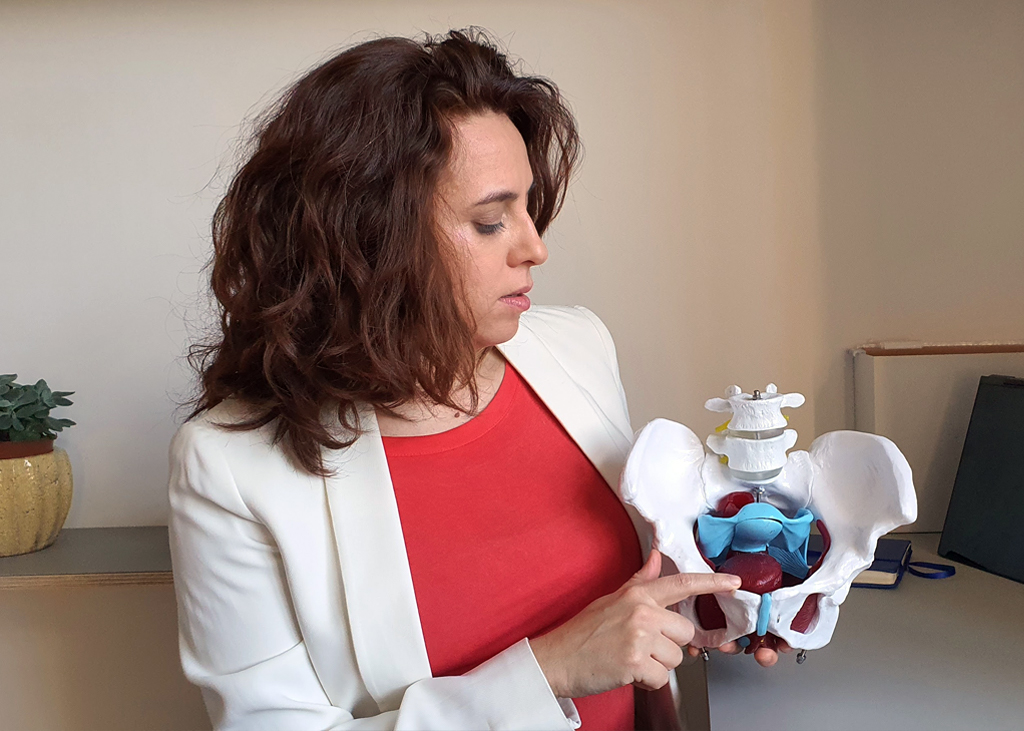
- Do you feel a heaviness or a bulge in your vagina when you are sitting?
- Do you feel or see something coming down in your perineum that was not there before?
- Do you experience pain during sexual intercourse?
- Do you have difficulty inserting or keeping tampons in? Or do they feel uncomfortable?
Please note, it isn’t necessary to have all the symptoms to have a prolapse.
The name of the prolapse of the organ which has descended, we are speaking about the common ones, the cystocel (Bladder descent), the uterine prolapse (uterus descent) or rectocele (rectal descent).
The common symptoms are heaviness in the lower pelvis and swelling in the pelvic floor (usually symptoms feel worse at the end of the day or during the menstrual cycle), maybe there also are bladder, bowel or sexual symptoms.
Treatment
To improve the state of a prolapse, it is not enough to exercise and strengthen the muscles responsible for supporting the viscera of the pelvis (pelvic floor muscles). Also, you need to have good posture, work on your breathing pattern, activate your core and have strong gluteus and lower back muscles. We must also correct all those factors that negatively affect the pelvic floor and can cause a worsening of a prolapse.
It will be of little or no use for us to train our pelvic floor very hard on the one hand if, on the other, we continue to maintain habits that harm and weaken it. That is why it is important to avoid constipation, have good toilet habits for your bowel and bladder, avoid and learn to reduce intra-abdominal pressure during daily life and when exercising.
The pelvic organ prolapse has 4 stages (0 stage the organ has not descended and stage 4 the organ has completely descended). The physiotherapist can treat stages 1 and 2 very successfully and can also improve symptoms at stage 3. At stage 4 it is necessary for patients to use a vaginal pessary to help support their organ, or for them to have surgery. However, physiotherapy treatment is still highly recommended to stop a prolapse from recurring at every stage.
Some techniques to successfully treat this problem include: changing lifestyle habits, visceral manual therapy, a low impact exercise programme, bio-feedback for the pelvic floor, postural rehabilitation and hypopressive abdominal technique.
